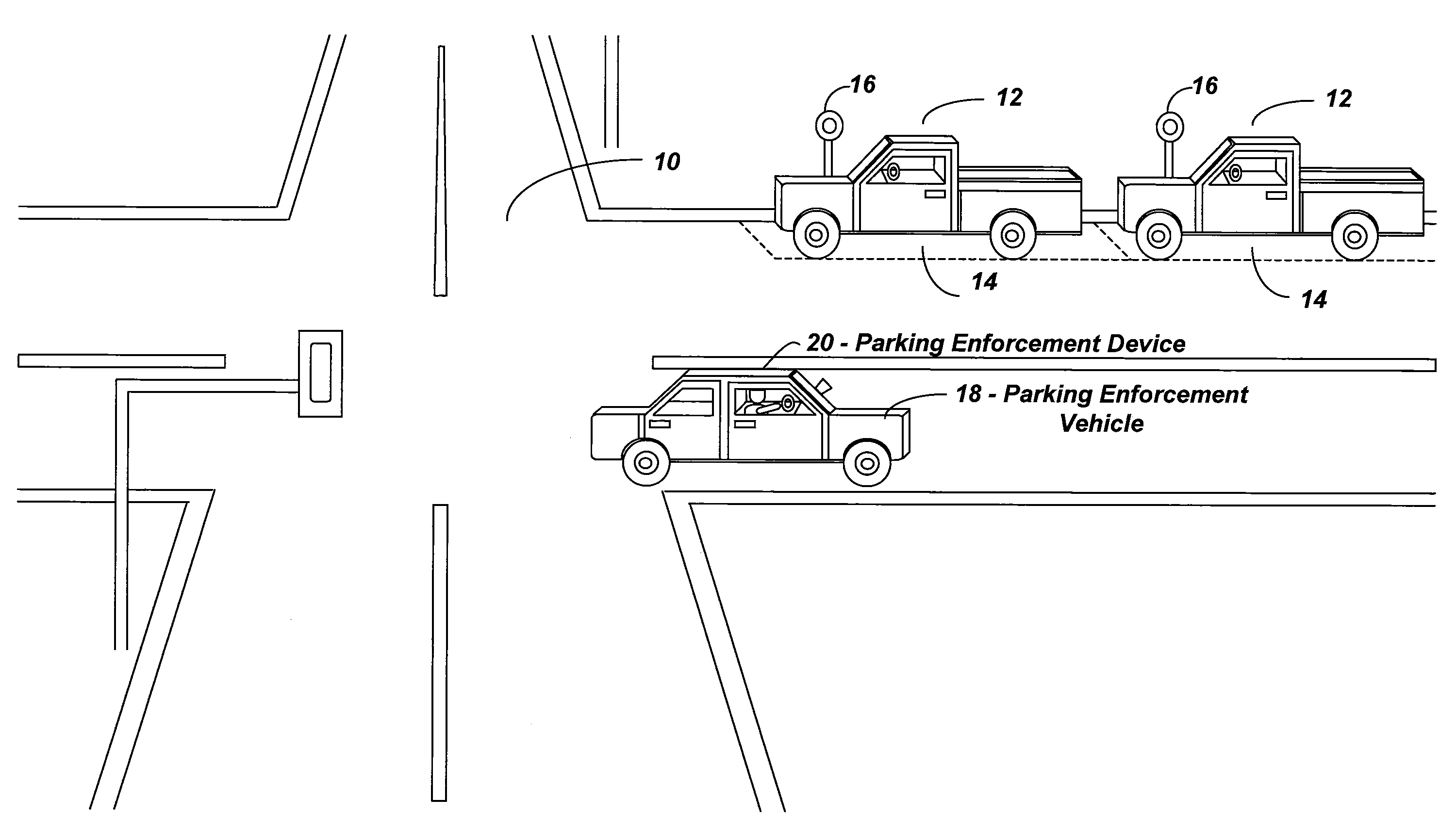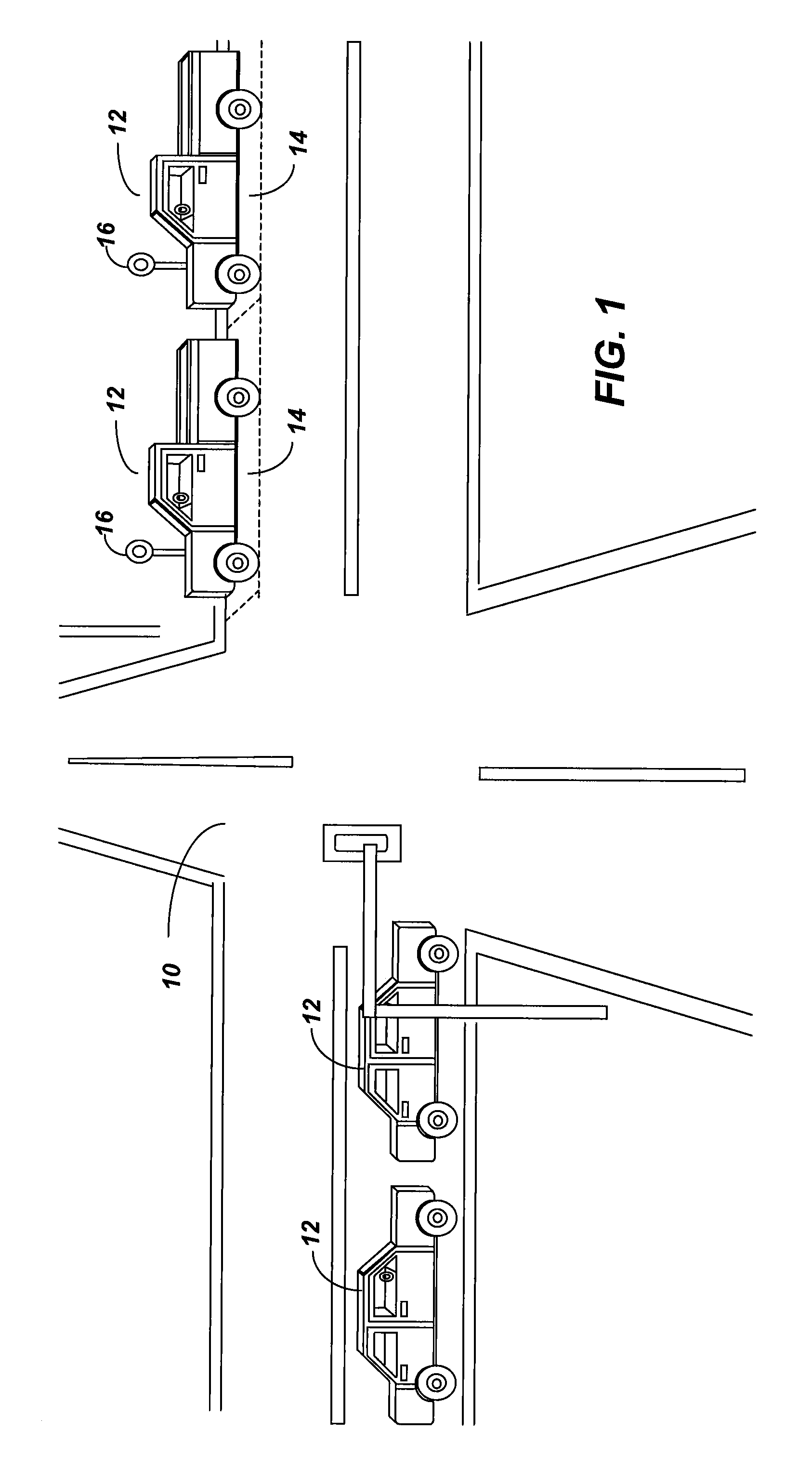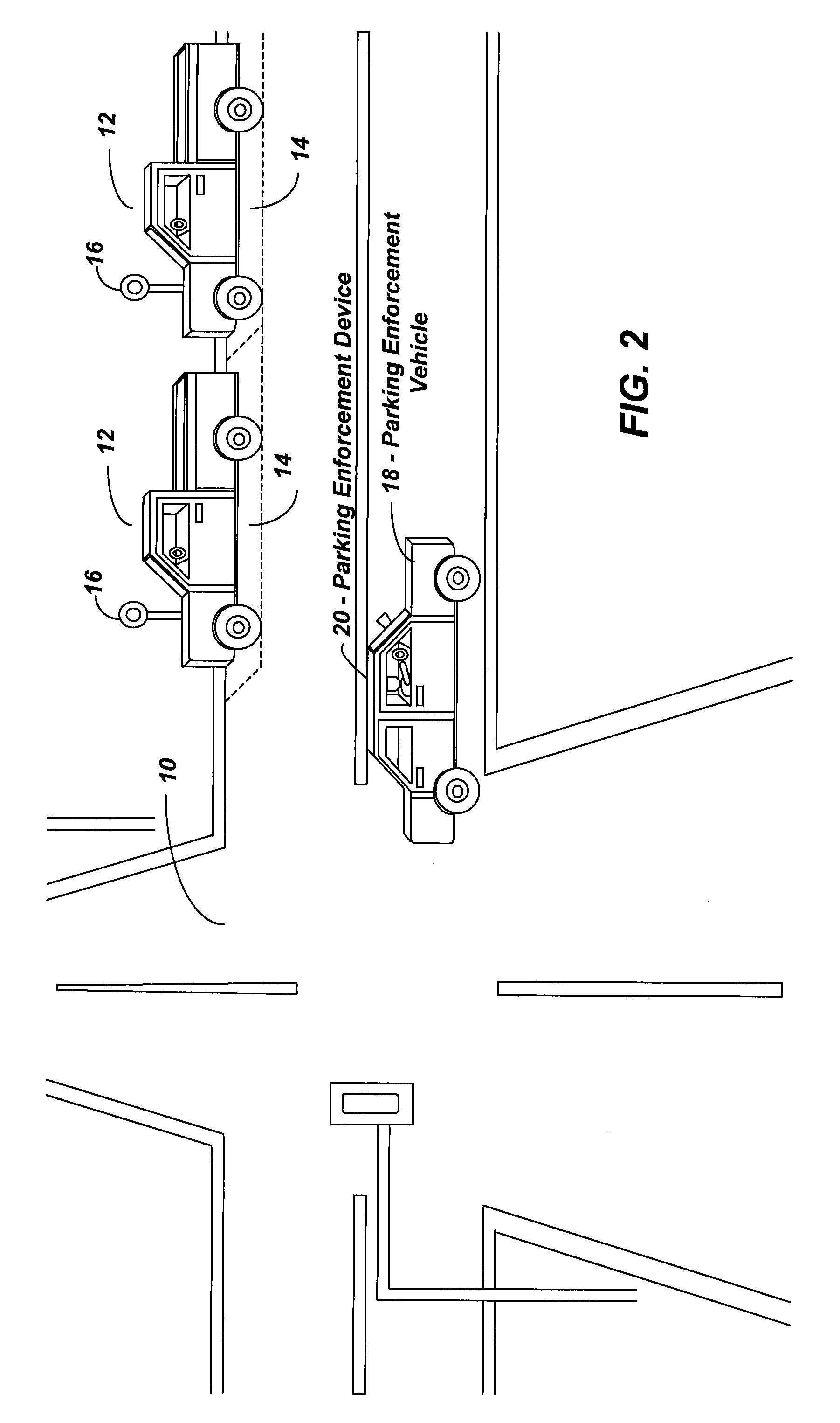System and method for parking infraction detection
a technology for parking infractions and automatic detection, applied in the field of parking enforcement, can solve the problems of enforcement officers' efforts, difficult upkeep of parking meters, and high installation costs, and achieve the effect of reducing the number of infractions
- Summary
- Abstract
- Description
- Claims
- Application Information
AI Technical Summary
Benefits of technology
Problems solved by technology
Method used
Image
Examples
Embodiment Construction
[0035]Reference is now made to FIG. 1, where a diagram illustrating vehicles parked on a street is shown. FIG. 1 illustrates a roadway 10, upon which vehicles 12 are driven, and parked in parking spaces 14. The term roadway 10 is used to refer to any transportation route upon which a vehicle 12 may be driven and parked. Parking spaces 14 as shown in FIG. 1 are used to refer to the designated areas upon a roadway where parking is allowed. The parking space 14 may be used based on the respective rules that govern the parking of vehicles 12. The parking regulations may specify that the parking spaces may be occupied only at certain times of the day, or occupied at certain times of the day based on a fee for use system. Also, shown in FIG. 1, is a parking meter 16. The parking meter 16 provides a mechanism by which parking enforcement authorities may administer parking regulations. The parking meter 16 allows motorists to purchase an amount of time by entering money into the meter, whic...
PUM
 Login to View More
Login to View More Abstract
Description
Claims
Application Information
 Login to View More
Login to View More - R&D
- Intellectual Property
- Life Sciences
- Materials
- Tech Scout
- Unparalleled Data Quality
- Higher Quality Content
- 60% Fewer Hallucinations
Browse by: Latest US Patents, China's latest patents, Technical Efficacy Thesaurus, Application Domain, Technology Topic, Popular Technical Reports.
© 2025 PatSnap. All rights reserved.Legal|Privacy policy|Modern Slavery Act Transparency Statement|Sitemap|About US| Contact US: help@patsnap.com



